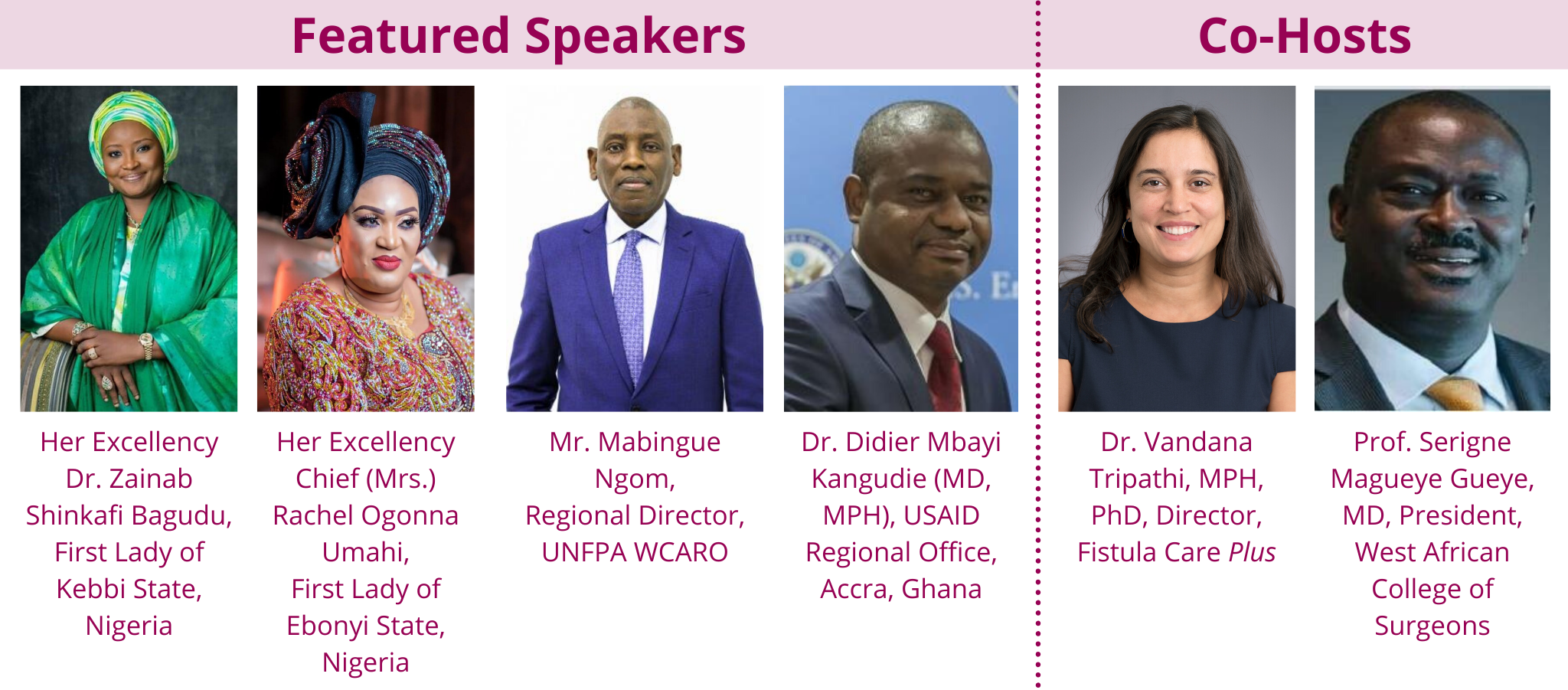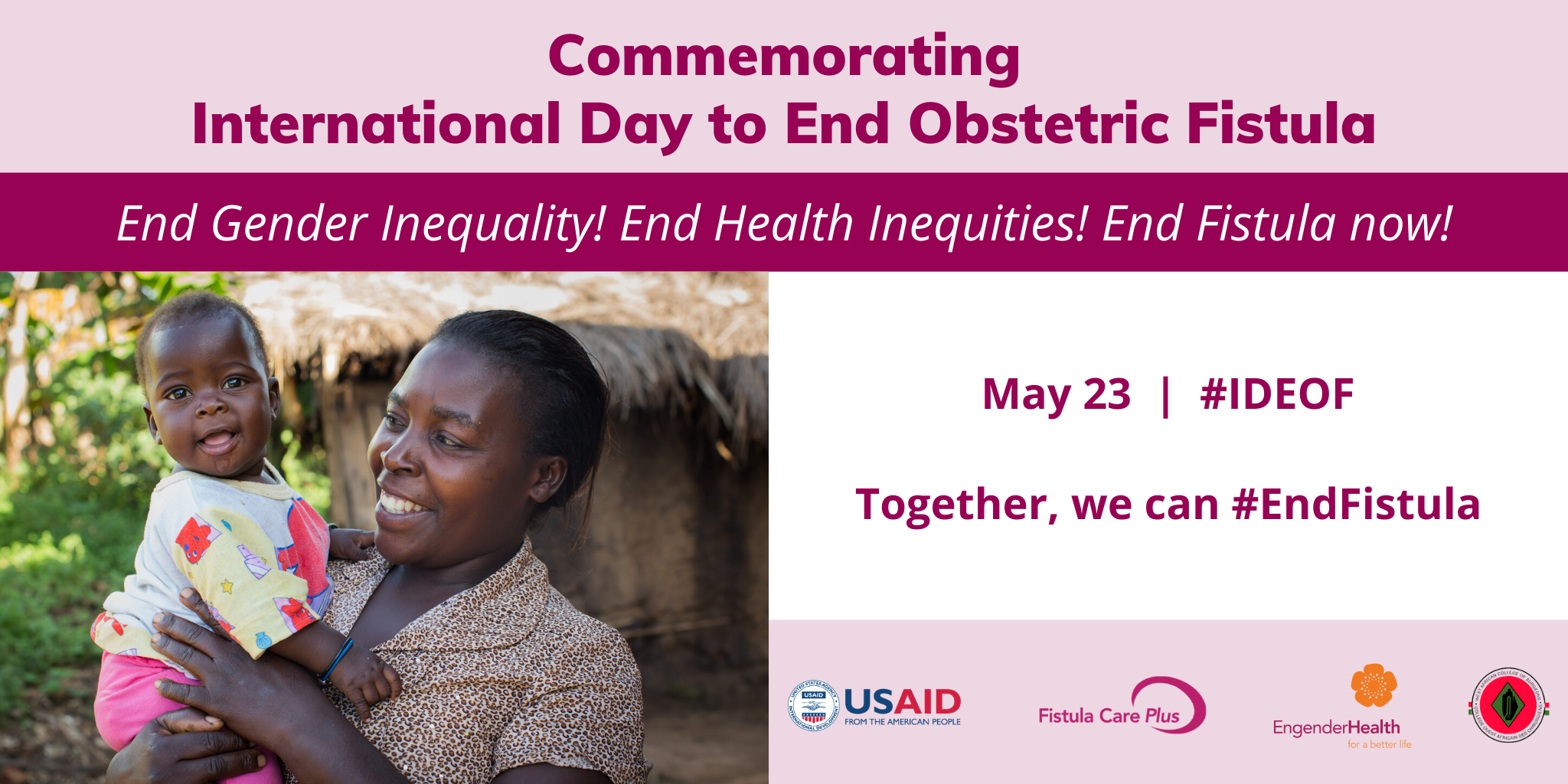
Each year on 23 May, the global community commemorates the International Day to End Obstetric Fistula (IDEOF). The day, set by the United Nations, aims to recognize the struggles of women living with fistula, a devastating health condition caused primarily by prolonged/obstructed labor and, increasingly, by unsafe obstetric or gynecological surgery. IDEOF also recognizes the efforts of governments, maternal health stakeholders, and health care workers to prevent and treat fistula, making progress towards a global goal of ending fistula by 2030. The theme for this year’s IDEOF commemorations was chosen by the United Nations Population Fund (UNFPA), and announced by UNFPA Executive Director Dr. Natalia Kanem to be, “End gender inequality! End health inequities! End fistula now!” Dr. Kanem stated, “As health systems struggle to respond to COVID-19, the pandemic stands to take a huge global toll on maternal and newborn health. Already, the crisis is compounding the economic, social, and logistical barriers that women and girls face in accessing sexual and reproductive health services. Even where services are available and accessible, fear, misinformation, and stigma related to COVID-19 are deterring some pregnant women from seeking obstetric care. The absence of timely medical treatment will likely spur a dramatic increase in obstetric fistula, a serious childbirth injury resulting from prolonged, obstructed labor.”
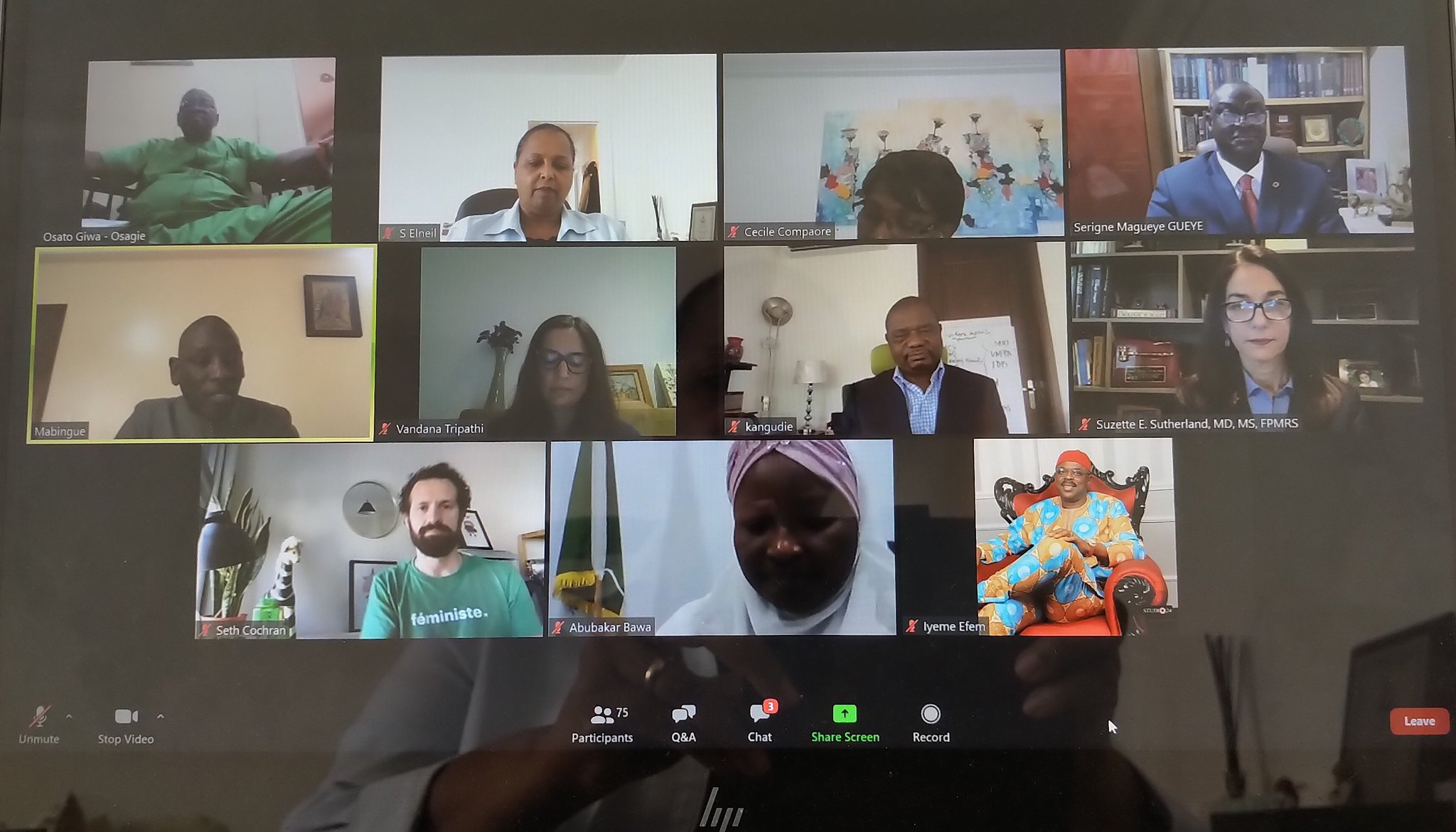
In order to safely commemorate IDOEF during the time of COVID-19, the West African College of Surgeons (WACS) and EngenderHealth’s Fistula Care Plus (FC+) project hosted a virtual event. The event was well-attended by leaders in fistula prevention and treatment efforts, with speakers and participants representing countries including Benin, Burkina Faso, Democratic Republic of Congo, Gambia, Liberia, Mozambique, Nigeria, Niger, Senegal, and Togo. Her excellency Dr. Zainab Bagudu, First Lady of Kebbi State, Nigeria, and Her Excellency Chief Mrs. Racheal Umahi, First Lady of Ebonyi State, Nigeria were guests of honor. The First Ladies shared their strong support for efforts to prevent, identify, and provide repair services for fistula in their country. The event also featured speakers from the USAID West Africa Regional Mission, ministries of health, academic institutions, and UNFPA country and regional teams. Remarks discussed known barriers to adequate maternal health and fistula services in the region, as well as the activities by FC+, WACS, and partners to break down these barriers.
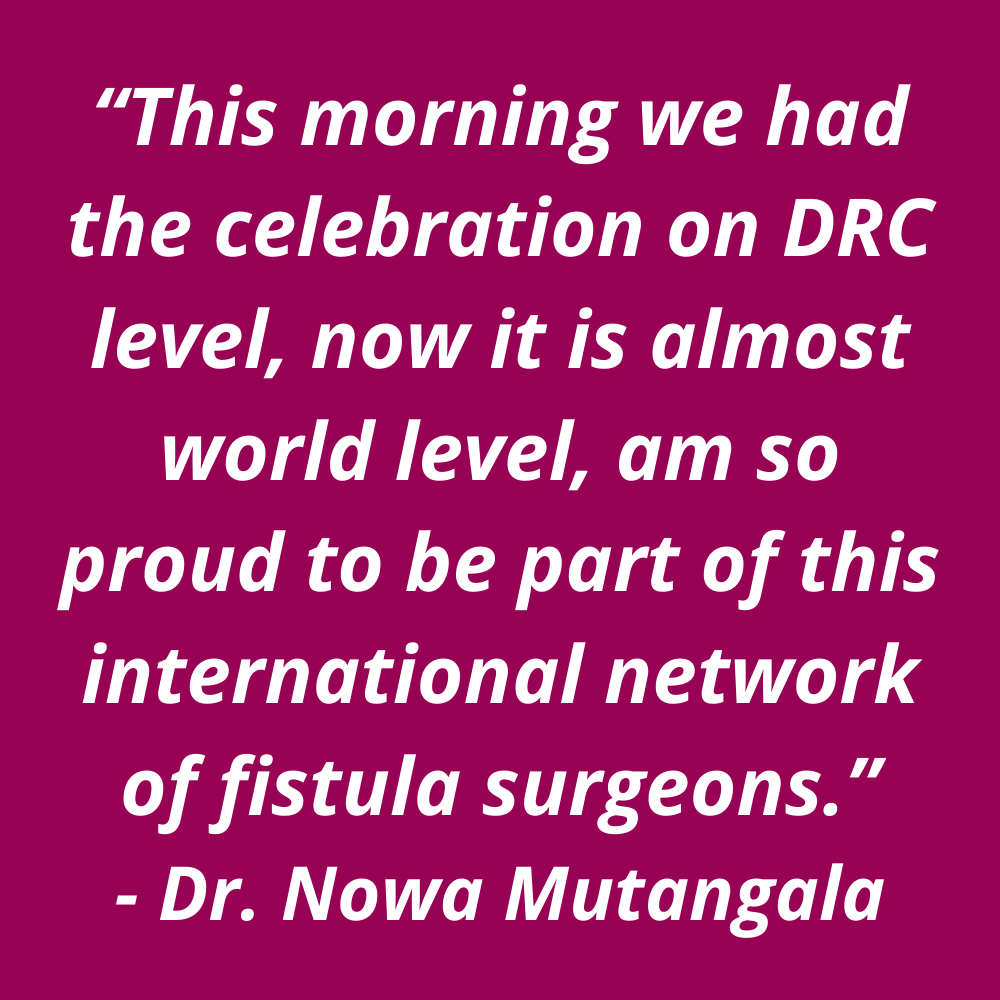
Professor Serigne Magueye Gueye described WACS leadership in building a strong surgical workforce across the region, for fistula care. Of the College, Prof Gueye stated, “Its role can be for prevention, treatment, and for social reintegration [after fistula repair]. We do research, build capacity of trainees, and provide treatment across the entire West African region. We also have a database of general surgeons, urologists, and anesthesiologists, and trainees based across West Africa who contributes to the prevention and treatment efforts to alleviate the burden of fistula in the region.” FC+ Director, Dr. Vandana Tripathi, stated, “Health inequities make it harder to prevent and treat fistula, crucial if we are to end fistula in a decade. Gaps in access to quality midwifery care make it harder to prevent and treat fistula early through catheterization after obstructed labor. Inequitable access to safe emergency obstetric care contributes to the rise we see in iatrogenic fistula. And of course, inadequate distribution of surgical treatment capacity means that the same women who are most vulnerable to developing fistula may have the hardest time learning about or reaching quality fistula repair services.” To address these gaps, FC+ is proud to partner with WACS to create a costed workforce development plan that supports the Economic Community of West African States (ECOWAS) to meet its call to eliminate fistula in the region by 2030. Contributing to efforts to build the capacity of the health workforce addressing fistula globally will be the forthcoming introduction of a new urogynecology curriculum by the Royal College of Obstetricians and Gynecologists (RCOG), highlighted at the event by senior urogynecology consultant Dr. Sohier Elneil. RCOG has joined forces with EngenderHealth, as well as partners including FIGO, UNFPA, and senior fistula experts, to create this competency-based resource, expected to be completed by the end of 2020. Dr. Elneil noted the importance of integrating fistula capacity building within broader pelvic medicine, and of sustainable capacity building by including it within academic medical institutions and professional associations.
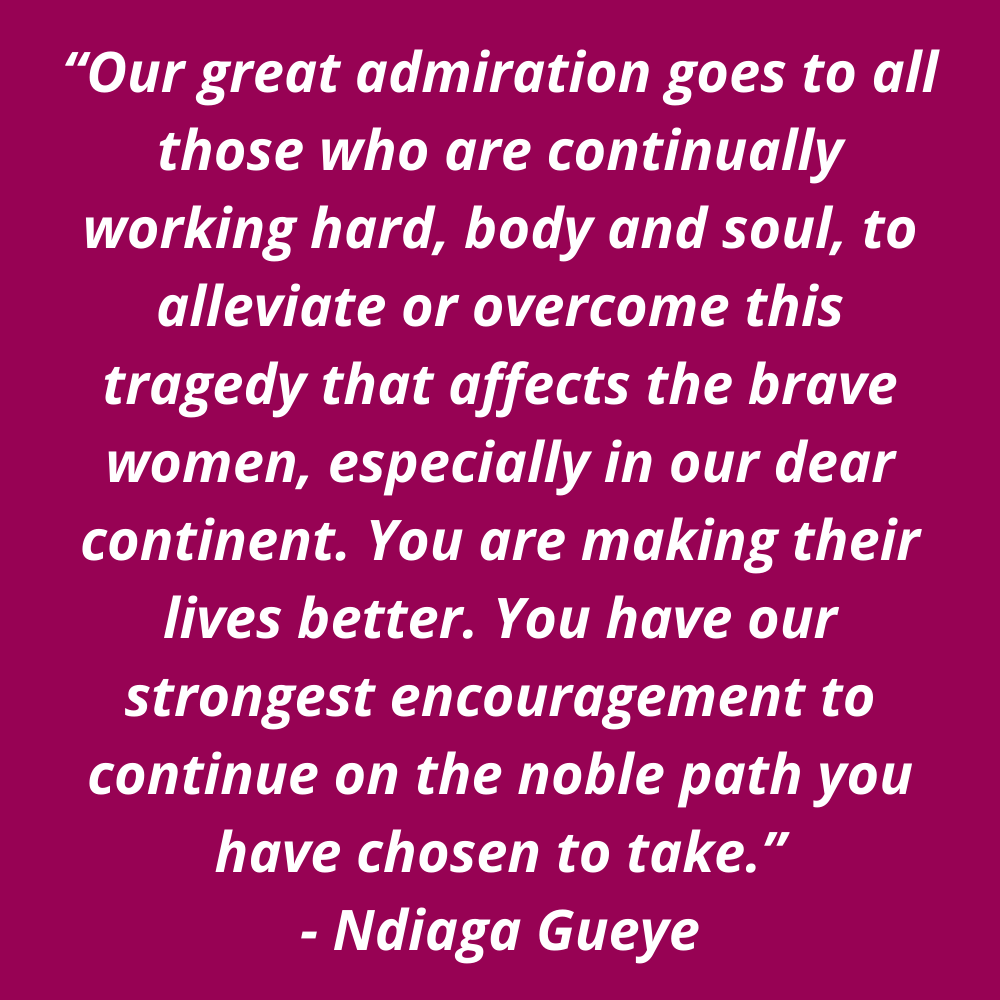
Several participants discussed the inter-linkage between gender inequality and fistula, as highlighted in this year’s IDEOF theme. The FC+ Director noted, “Recent project research conducted with the Demographic and Health Survey Program showed that women with fistula are more vulnerable to gender-based violence. Twice as many women who report fistula symptoms also report having experienced physical and sexual violence compared to women who have never experienced fistula symptoms. Similarly, our research with the Population Council has shown us that many of the barriers to fistula information, screening, diagnosis, and treatment reflect gender inequality – women’s greater lack of literacy, vulnerability to stigma, and challenges in getting permission simply to seek or travel to care.”
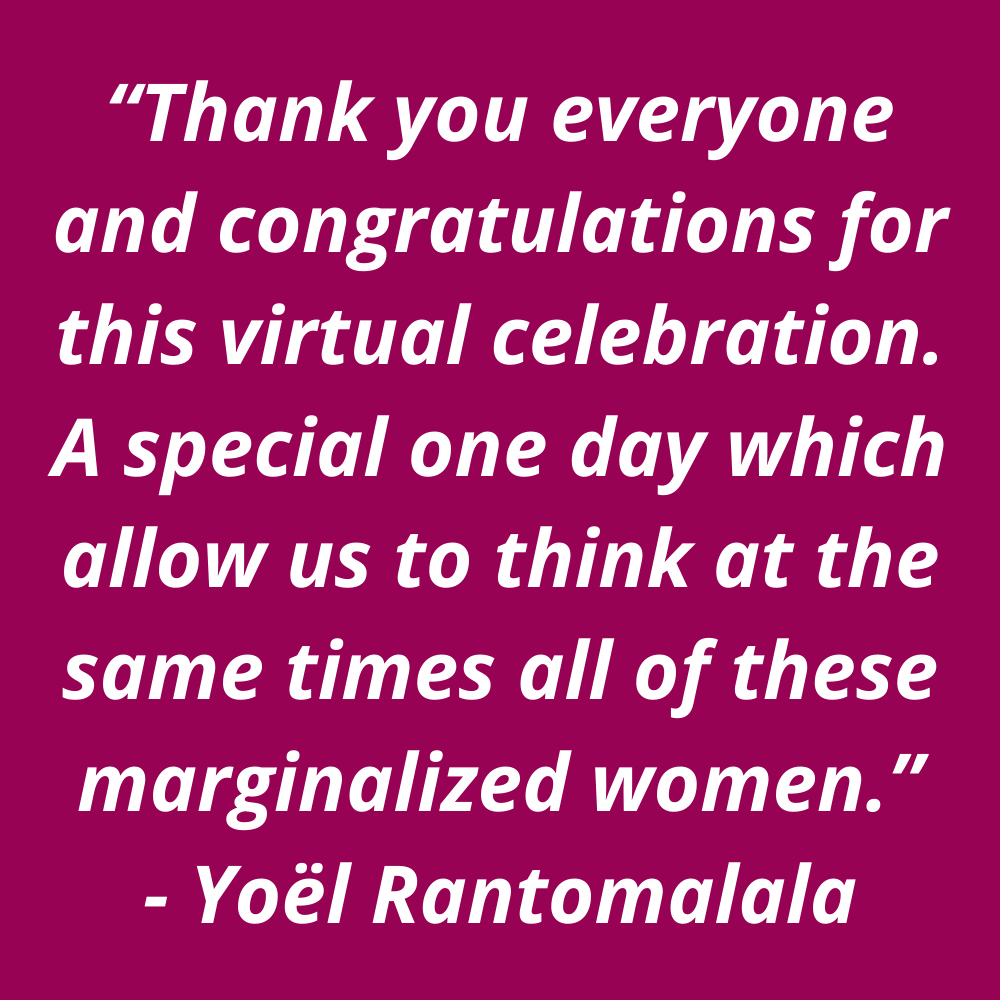
Another key topic was the value of cross-cutting regional interventions and overall health systems strengthening. Dr. Didier Mbayi Kangudie, Senior Regional Health Advisor at USAID West Africa stated, “Ending fistula also requires cross-cutting interventions to improve women’s health, strengthen gender equity, and address contributing factors like early marriage, female genital mutilation, and gender-based violence.” To this end, USAID supports programs addressing these issues in partnership with governments and communities across the region.
Included within all effective programs is a focus on strengthening data systems building an evidence base. Mabingue Ngom, Regional Director for UNFPA’s West and Central Africa Regional Office, emphasized this by calling for the continued national and regional efforts to adequately capture maternal health data, especially related to maternal morbidities such as fistula. “We need more data and evidence. Without data we cannot show the magnitude of the problem… we need strong data to truly end fistula.”
Cecile Campaore, Country Representative of UNFPA Senegal, summed up the overall energy of the community gathered for the virtual event as she said, “I call for increased efforts to strengthen health systems, increase investment, and forge innovative partnerships leading to the eradication of fistula by 2030.” FC+ thanks everyone who joined the virtual event, sharing experiences from their countries and throughout the region on the work to end fistula. In the words of Dr. Kangudie as we ended the event, “Vive le WACS, Vive la coopération régionale.”
